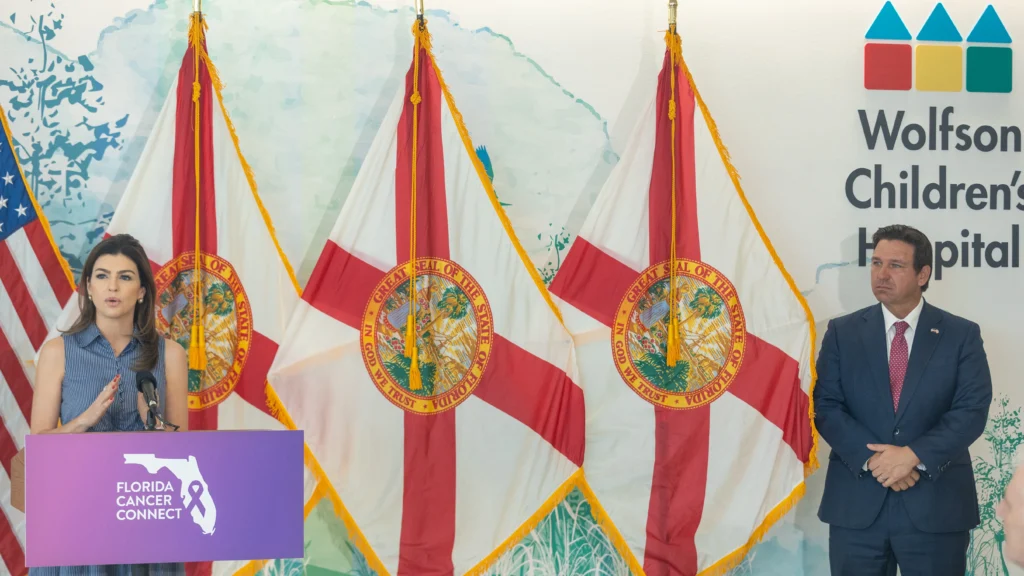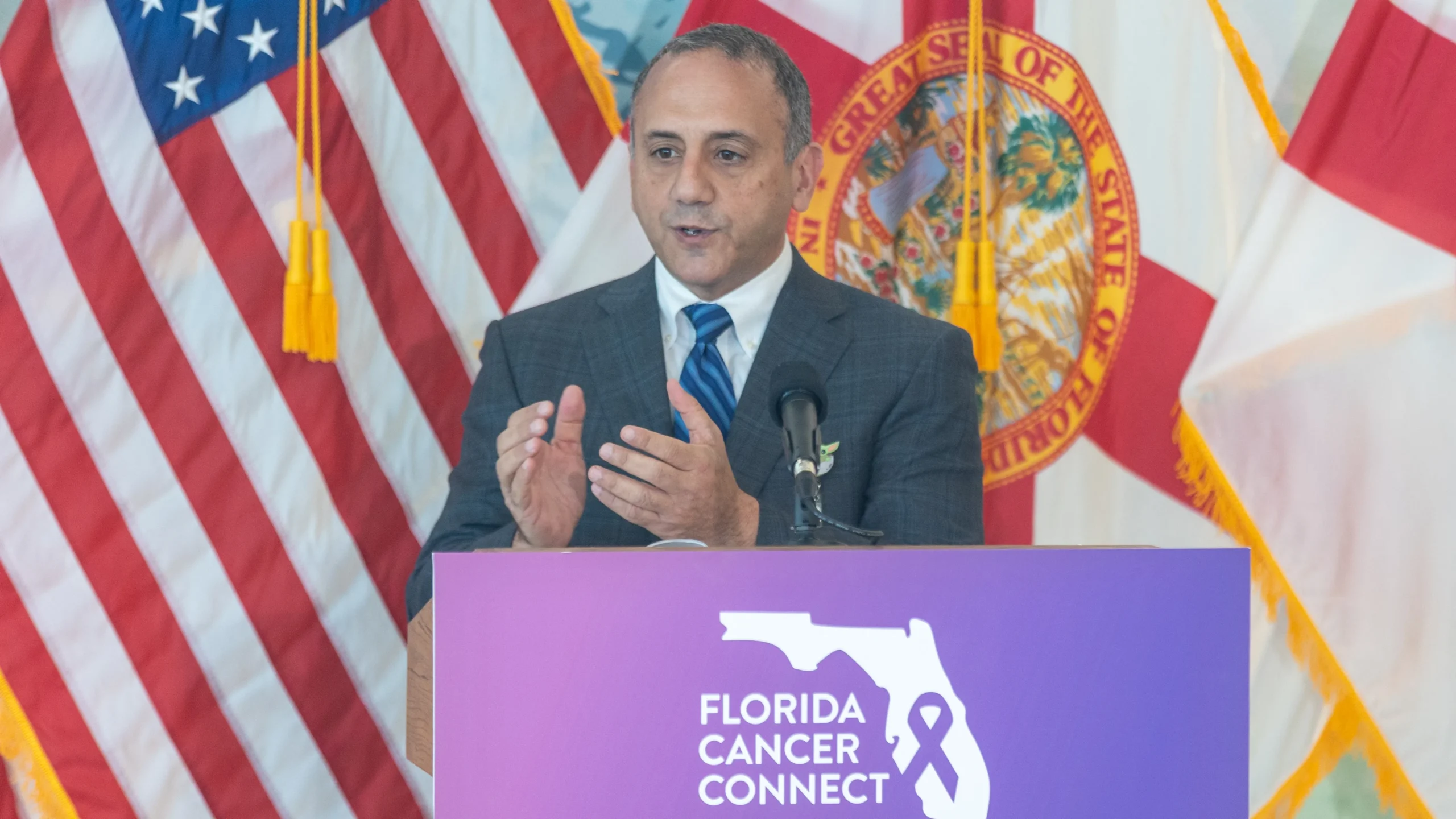Wolfson Children’s Hospital will have a dedicated funding source to combat pediatric cancer, after the award of $37.5 million in funding from Florida’s Cancer Connect Collaborative.
Gov. Ron DeSantis announced Monday in Jacksonville that Wolfson and four other children’s hospitals received the dollars to invest in cancer research; recruit researchers, physicians and clinicians; and expand access to childhood cancer care.
Dr. Anderson Collier says the public investment will provide a world-class facility in Jacksonville that is sustainable and will outlive the funding infusion. Collier is the division chief for pediatric hematology and oncology at Nemours Children’s Health, Jacksonville and practices at Wolfson.
Wolfson Children’s Hospital; Nemours Children’s Hospital, Orlando; Nicklaus Children’s Hospital in Miami; and Johns Hopkins All Children’s Hospital in St. Petersburg will each receive $37 million. It will be broken up into $7.5 million installments for each of the next five years.
“This truly is a transformative infusion of support from the Florida government recognizing what we can do in terms of escalating treatment for pediatric cancer,” says Mark Toney, Wolfson’s vice president of medical affairs. “The apportionment over five years allows us to strategically think about how to build a model of care that is second to none.”
DeSantis and first lady Casey DeSantis announced the initiative during a visit to Wolfson Children’s Hospital in July.

Florida has the third-highest population of any state, but the Sunshine State lags most large states in terms of pediatric access. According to American Board of Pediatrics data, Florida has one pediatrician for every 1,420 children.
In California, according to the pediatric group’s data, there is one pediatrician for every 1,228 children. In Texas, the figure is one pediatrician for every 1,721 children. New York, Pennsylvania and Illinois all have lower pediatrician-to-child ratios than Florida.
Florida Surgeon General Dr. Joseph Ladapo says pediatric cancer is underfunded in Florida. He expressed hope that the state money will lead to breakthroughs that will allow children with cancer to receive treatment closer to home.
Studying pediatric cancer
During the past 15 years, there has been a push to learn more about pediatric cancer, its incidence rate and the effect cancer may have during the different periods of childhood.
In 2022, the American Association of Cancer Research published research that concluded that pediatric cancer occurs at a “statistically significantly higher rate in the Northeast than in the rest of the United States.”
Dr. Cassandra Josephson was not one of the seven authors of the study. Dr. Josephson is, however, a professor of oncology within the Johns Hopkins School of Medicine and the director of the Johns Hopkins All Children’s Cancer & Blood Disorders Institute in St. Petersburg.
“That’s one of the hardest parts about cancer in children. It’s really a lot of different, small populations,” Josephson says. “Those different types of cancers hit different age groups in pediatrics differently. They actually make some of the cancers — like a leukemia that might hit a young adolescent — be a high-risk tumor, where it’s not so high-risk in a younger age.”
Josephson says there is more of an understanding of why cancers develop and create therapies that will stop the warped development of those cells.
That type of research requires dedication and a commitment to funding it.
Josephson and Wolfson officials say Florida’s investment in pediatric cancer research at hospitals across the state will provide for the health care collaboration that will save a child’s life.







